The price of one country's currency expressed in another country's currency. In other words, the rate at which one currency can be exchanged for another. For example, the higher the exchange rate for one euro in terms of one yen, the lower the relative value of the yen.
Currency |
Rate % p.a |
|---|---|
United States Dollars (USD) |
1.25 % |
Great Britain Pounds (GBP) |
1.00 % |
Euro (EUR) |
0.40 % |
Australian Dollars (AUD) |
1.00 % |
Canadian Dollars (CAD) |
0.50 % |
Swiss Francs (CHF) |
0.01 % |
Singapore Dollars (SGD) |
0.25 % |
Hong Kong Dollar (HKD) |
0.01 % |
Japanese Yen (JPY) |
0.01 % |
Swedish Kroner (SEK) |
0.10 % |
New Zealand Dollar (NZD) |
1.50 % |
Danish Kroner (DKK) |
0.01 % |
Norwegian Kroner (NOK) |
0.10 % |
Chinese Yuan Renminbi(CNY) |
1.25 % |
Thai Bhat (THB) |
0.01 % |
Indian Rupee (INR) |
1.00 % |
Period |
USD Interest % |
GBP Interest % |
EUR Interest % |
AUD Interest % |
CAD Interest % |
|---|---|---|---|---|---|
01 Month |
3.50 |
1.75 |
1.50 |
1.50 |
1.90 |
03 Month |
4.00 |
2.75 |
2.50 |
3.00 |
1.95 |
06 Month |
4.25 |
3.50 |
2.75 |
3.50 |
2.15 |
12 Month |
4.50 |
4.25 |
3.50 |
4.00 |
2.25 |
12 Months (Interest paid Monthly) % p.a. |
4.40 |
4.15 |
3.45 |
3.90 |
2.20 |
13 Months |
4.50 |
4.25 |
3.50 |
4.00 |
2.25 |
15 Months |
4.50 |
4.25 |
3.50 |
4.00 |
2.25 |
The money market is where financial instruments with high liquidity and short-term maturities that usually range from overnight to one year are traded. Repurchase agreements (Repo) and reverse repurchase agreements (Reverse repo) are common money market instruments of the bank.
A short term investment where Treasury Bills or Treasury Bonds are assigned to you as collateral for your investment.
On maturity of the agreement, the investor benefits by being entitled to the principal plus the interest for the period which could either be reinvested or recalled.
The documents are available in People’s Bank Head Office and will be sent to branches on request of a customer or can be downloaded from the website. Once the documentation is completed the customer can hand over the documents to a People’s bank branch and invest in Repo adhering to below the guidelines.
These are securities issued by the Central Bank of Sri Lanka, on behalf of the Government of Sri Lanka. Since the issuer is the sovereign, these are de facto credit risk-free investments, which is certainly a relief to investors.
Some of the features of GS’s are
Eligible Investors:
Foreign exchange brought into the country for the purchase of treasury bills and treasury bonds, proceeds realized on a sale/maturity of treasury bills and treasury bonds, and coupon payments or any income realized by way of capital gain shall be routed through a rupee "Inward Investment Account" (IIA) opened or already maintained with the bank in the name of an eligible investor.
Treasury Bills
A short term Government Security issued by The Central Bank of Sri Lanka on behalf of the Government.
Some of the features of T-Bills are
Treasury Bonds
Treasury Bonds are medium to long term Government Securities, issued by The Central Bank of Sri Lanka on behalf of the Government. As with any Government Security, Treasury Bonds are risk-free credit investments, since the issuer is the sovereign.
Some of the features of T-Bonds are
According to the CBSL rules and regulations the following documents are required before entering in to a Government Security transaction.
For Corporates / Institutions
For Individual Investors
* These documents are available in People’s bank Head Office and will be sent to branches on the request of a customer or can be downloaded from the website. . Once the documentation is completed customer should handover the documents to a People’s bank branch.
For rates, please contact
pdu@peoplesbank.lk at Treasury.
People’s Bank Investment Banking Unit (PBIBU) was established as a part of the People’s Bank Treasury Unit. PBIBU offers a full range of services including financing and advisory services, initial public offerings, debt structuring, fixed income security trading, loan syndications, trustee services, custodian and securitizations. With its group synergies and strength of the bank, PBIBU established its name in the capital market as one of the best and innovative solution providers for its clientele within a short time span.
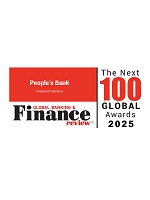


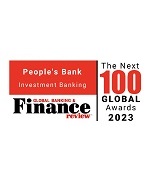
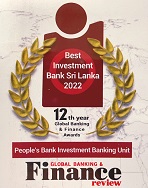
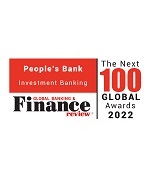
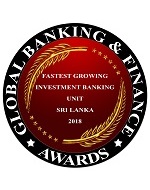
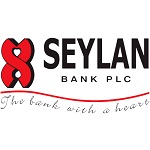






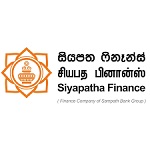
















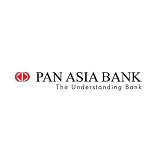







i |
Initial Public Offerings (IPO) |
|
ii |
Right Issue |
|
iii |
Commercial Paper |
|
iv |
Securitization |
|
v |
Trustee |
|
vi |
Custodian services |
|
viii |
Valuation |
|
ix |
Promissory Notes |
|
x |
Loan Syndication |
|
For more information, please contact trimalie@peoplesbank.lk, upeksham@peoplesbank.lk, amandap@peoplesbank.lk at Treasury.
Mrs. Shameela Loku Kaluge
Deputy General Manager - Treasury, International & Investment
Mrs. Vinitha Ebeneezer
Assistant General Manager - Treasury
Investment Banking Unit
Contact Persons : Trimalie , Amanda & Upeksha
Primary Dealer Unit (PDU)
Contact Persons : Eroshi , Deshani & Sachini
Money Desk
Contact Persons : Anushki, Gayan, Kosala, Poornima & Dulaj
FX Desk
Contact Persons: Niranga, Chamara, Ramesh, Irushani, Sameera & Thilina
| Term | Definition |
|---|---|
Accrued interest |
The interest deemed to be earned on a security but not yet paid to the investor. |
Appreciation |
Is when a currency’s value grows stronger. |
Arbitrage |
The simultaneous purchase and sale of an asset in order to profit from a difference in the price. It is a trade that profits by exploiting price differences of identical or similar financial instruments, on different markets or in different forms. |
Ask Rate |
The rate at which a trader can buy a currency that is for sale. |
Auction |
Refers to the public sale of Treasury securities. |
Base Currency |
The currency in which other currencies are quoted in a pair. Usually the U.S. dollar is considered the ‘Base Currency |
Bear Market |
A market in which prices are declining. |
Bid/Ask Spread |
The difference between the bid and offer price. |
Big Figure |
Refers to a term used by dealers and/or brokers. It refers to the first few digits of an exchange rate. |
Broker |
An individual/firm that bring buyers and sellers together for a fee/commission. |
Bull Market |
A market in which prices are rising. |
Clearing |
A term used to refer to a process of settling a trade. |
Commission |
The fee that is charged by a broker/dealer. |
Confirmation |
The document that states the terms of a transaction. |
Contract |
The standard unit of trading. |
Cross Rate |
The exchange rate between any two currencies that are not of the country in which the currency pair is quoted. For example, in the U.S., a GBP/JPY quote would be considered a Cross Rate. The same quote would not be a Cross Rate in either the U.K. or Japan. |
Coupon |
This a feature of a bond that denotes the amount of interest due and the date payment will be made. |
Currency |
A unit of exchange. Any form of money that has been issued by a government/central bank is a currency. Currencies are used as a medium of exchange, i.e. they are used as a basis for trades. |
Day Trading |
Trades in which positions are opened and closed on the same day. |
Dealer |
An individual/firm that take one side of a position hoping to make a profit by closing out the position in a following trade with a different trader. |
Depreciation |
A fall in the value of a currency. |
Discount |
The amount by which the par value of a security exceeds its purchase price. |
Discount Rate |
The rate of return, on an annual basis, on Treasury bills held until they mature. The discount rate is expressed in percentage terms and based on a 360-day year. |
Foreign Exchange, Forex, FX |
The simultaneous purchase or sale of one currency against the purchase or sale of another. |
Forward |
The predetermined and agreed upon exchange rate for the settling of a transaction at some agreed future date. |
Fundamental Analysis |
The analysis of economic and political information as it aims to determine future market movements |
Inflation |
An economic condition in which the prices of goods rise, hence decreasing the purchasing power of consumers. |
Risk |
An exposure to the chance of loss. |
Roll-Over |
A process in which the settlement of a transaction is pushed forward to another date. |
Secondary Market |
The financial market where securities that were previously issued by the Treasury are bought and sold. |
Short Position |
A position that increases in value if the market prices decrease. |
Spread |
Refers to the difference between the bid and offer prices for a currency pair. |
Stop Loss Order |
An order in which an open position is automatically liquidated at a specific price. Stop Loss Order minimized potential losses if the market moves in the opposite direction of the investor’s position. |
Swap |
The sale and purchase of a certain amount of a certain currency at a forward exchange rate. |
Technical Analysis |
An analysis of historical market trends in an effort to forecast future market movements |
Transaction Cost |
The cost of making a financial transaction whether it is buying or selling. |
Yield |
The annual percentage rate of return earned on a bond calculated by dividing the coupon interest rate by its purchase price. |

